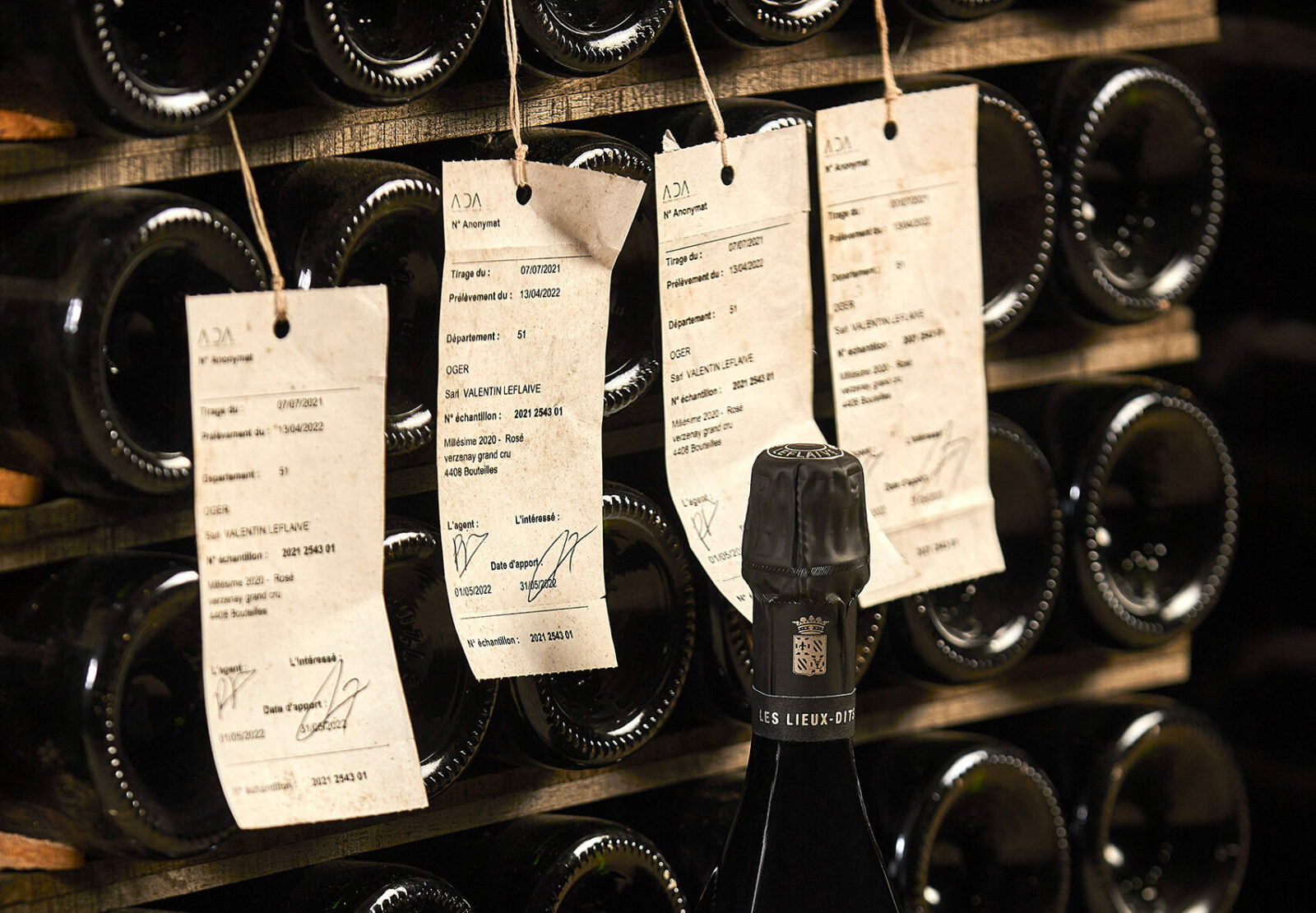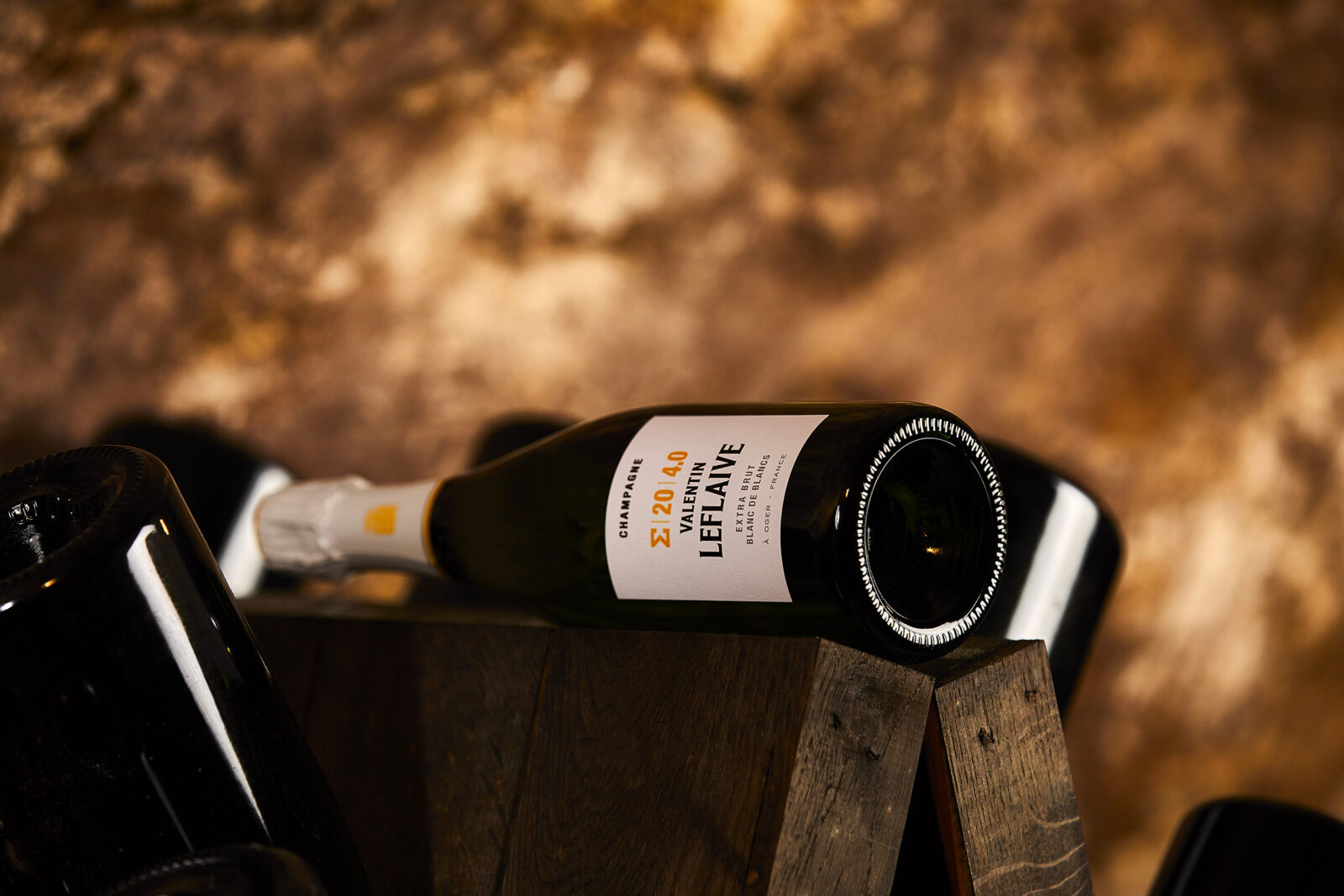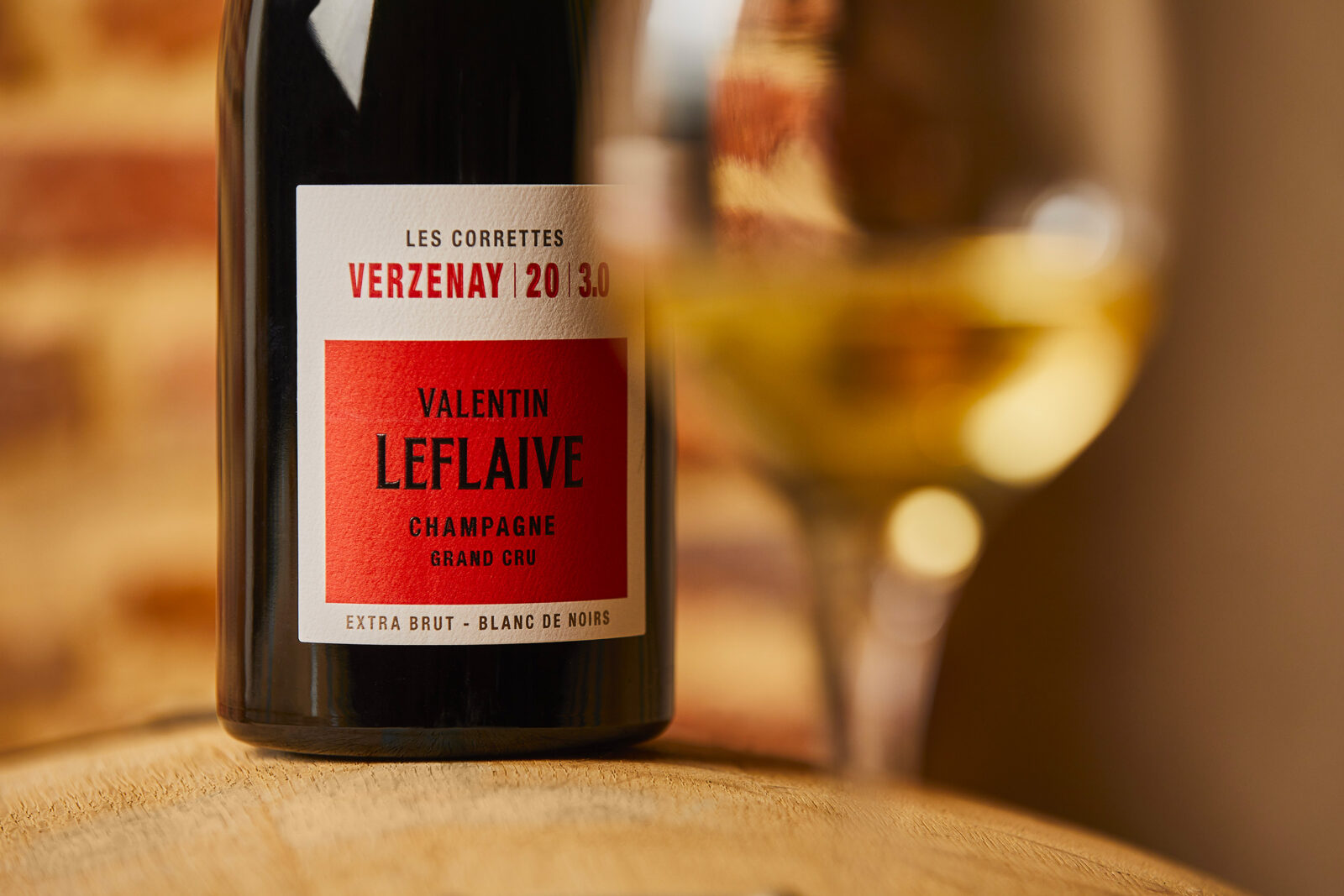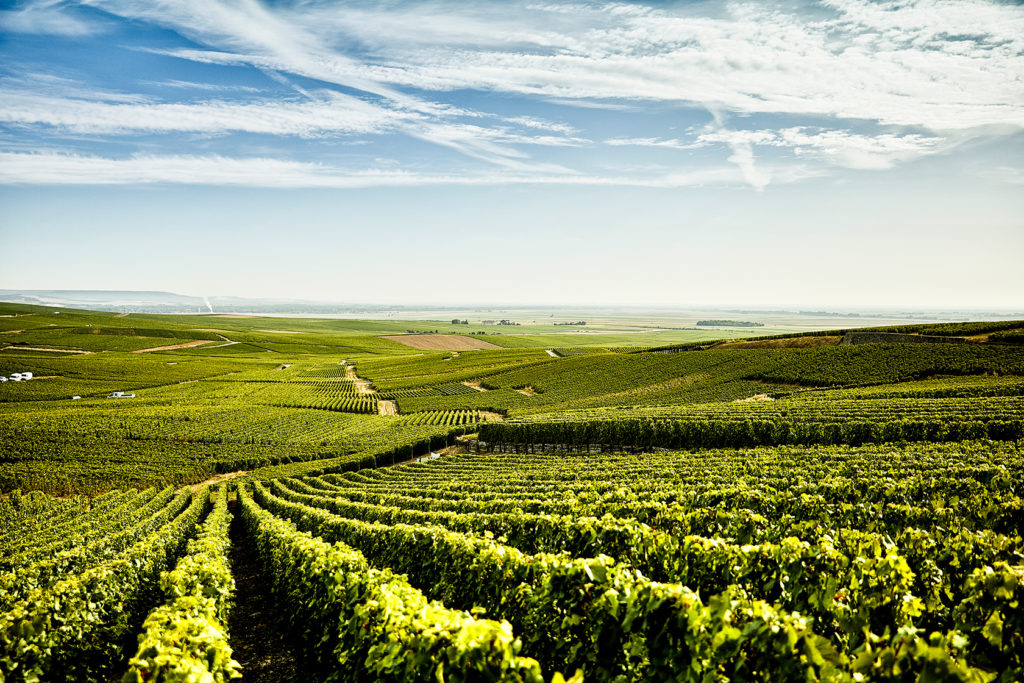MORE THAN A NAME, A CODE
ORIGIN marks the state of mind of the House. A code in which the color indicates the grape variety, the letters express the terroir, and the numbers indicate the base-wine years and the dosage. This modern approach affirms Valentin Leflaive’s determination to lay its cards on the table and play on transparency.

LETTERS OF NOBILITY
The plot approach is applied down to the smallest detail. The careful selection of the plot is identified by the first letters of the label. CV means that the grapes for the CV/19/3.0 cuvée were produced on the great terroirs of Cramant Grand Cru and Vertus Premier Cru. The place names are given in full, so that they can be seen on the label at first glance.

OPUS AND VINTAGES
The year of the harvest is given by the first two digits. Here, 19 corresponds to the year of the base blend, thus 2019. Vintages are given the letter M in the code. Then, the harvest year is specified in the usual way.

A BRUT WORLD
Long neglected, dosage is now essential information for understanding and choosing a Champagne. To help find your way around, Valentin Leflaive displays it on the label using the last two digits of the code. In CV|19|3.0, 3.0 refers to 3.0g of sugar per litre and thus represents an Extra Brut.

YELLOW, RED AND PINK COLOUR CODES
A novelty. Valentin Leflaive announces the colour with a specific code to distinguish the grape varieties used. Yellow for blanc de blancs from chardonnay, red for blanc de noirs from pinot noir and pink for rosé champagne.

